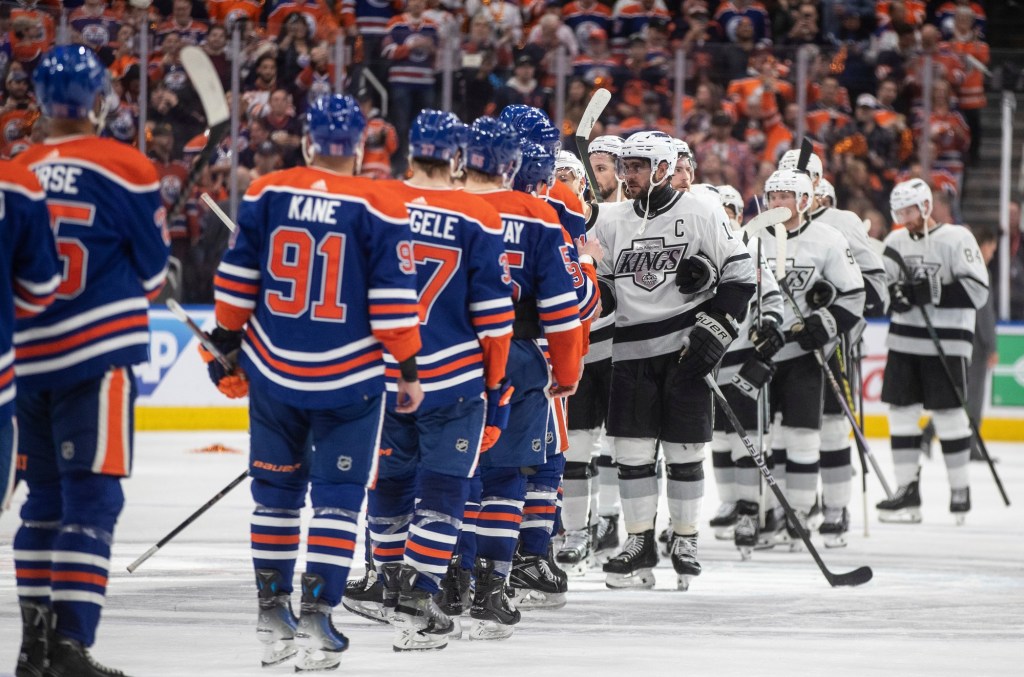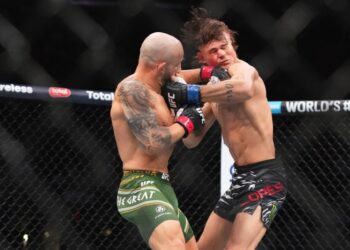Fresh promise and auspicious beginnings gave way to stale results from a season of tumult for the Kings, who were eliminated by the Edmonton Oilers, again, on Wednesday.
Edmonton has become more efficient in its disposal of its black-and-silver-clad warmup act, shortening the series and improving the performance of its lethal power play with each passing postseason meeting since 2022.
This Kings’ campaign was a zero-gravity roller coaster fit for a Six Flags property. Its early-season ascent saw the Kings set a record for the most consecutive road wins to start a campaign and reach the top of the NHL in both goals-for and goals-against averages, while posting the West’s top points percentage. But the middle of the season brought a freefall of epic proportions, with a stretch in which they lost 14 of 16 games leading to the dismissal of coach Todd McLellan and promotion of Jim Hiller.
Their finish, marked by twists and turns of its own but softened by one of the cushiest schedules in the NHL, squeaked them into the playoffs for a third straight first-round series with the Oilers that, again, began in Edmonton.
By that point, the Kings had turned a weakness from last season into a strength, their penalty kill, and also swapped early dominance on the road for a stronger home-ice advantage down the stretch.
They jockeyed around the top of the penalty-kill leaderboard, holding the No. 1 position for lengthy stretches and ultimately finishing second in the NHL, after last year’s PK struggled in the regular season and playoffs.
But this postseason, they performed even more poorly than last year, when they were sub-50% short-handed. Their numbers appeared to improve slightly but, factoring in a series-ending 19-second power play for Edmonton that technically counted as a Kings kill as well as two de-facto power-play goals the Oilers scored just as penalties expired, the PK performed, in effect, at a paltry 42%.
“We were first in the league for the whole season and, all…
Read the full article here







